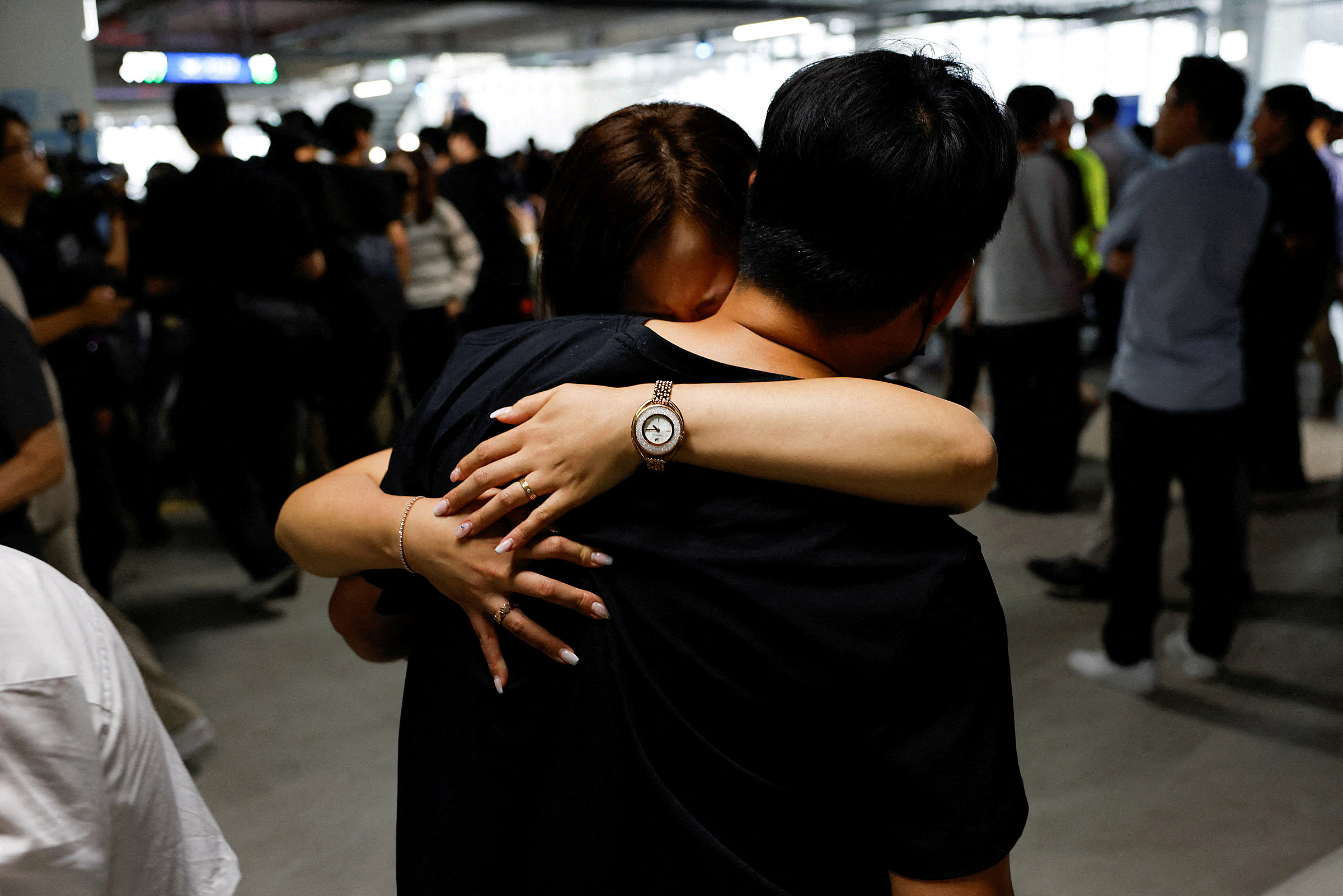316 South Korean workers arrived at Incheon airport on 12/9 on a chartered flight, reuniting with their families after a US immigration raid at Hyundai and LG plants in Georgia on 4/9. They expressed shock at the operation.
"It was like a military operation," one worker said, describing how US Immigration and Customs Enforcement (ICE) agents and law enforcement swarmed the construction site in under 10 minutes.
Another worker recounted agents arriving in helicopters and armored vehicles, sorting workers by visa status, and arresting those with visa waiver program (ESTA) entries or B-1 business visas.
 |
South Korean workers reunite with their families at Incheon airport on 12/9. Photo: Reuters |
South Korean workers reunite with their families at Incheon airport on 12/9. Photo: Reuters
The Department of Homeland Security (DHS) confirmed 475 arrests, including over 300 South Korean citizens, marking its largest single-site operation.
Detainees were held at the Folkston ICE Processing Center in southeast Georgia. With their phones confiscated, some couldn't contact family until release. "I was so worried, I couldn't sleep properly all week," said Hwang In-song, brother of a detained engineer.
One worker described the detention conditions as "very bad," while others complained about the food quality and bleach-smelling water.
ICE has not yet commented on these allegations.
South Korean workers are chained and escorted onto a vehicle during the September 4 raid in Georgia. Video: ICE
The wife of an engineer, surnamed Kim, said her husband was arrested on his first day at the plant. The family believed his B-1 visa permitted him to supervise construction. She now worries about his future US visa applications and career prospects. "I'm afraid this will ruin his career," she said.
Images and videos of handcuffed and shackled workers sparked outrage in South Korea. "I was furious to see an ally treat my brother like a criminal," one relative said at the airport.
President Lee Jae-myung warned on 11/9 that the raid could impact future South Korean investment decisions, especially the feasibility of direct US operations. South Korean companies have invested billions of USD in US plants to access the market and avoid tariff threats from the Trump administration.
Duc Trung (Reuters, Korea Times)












